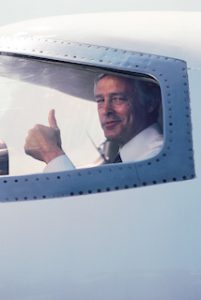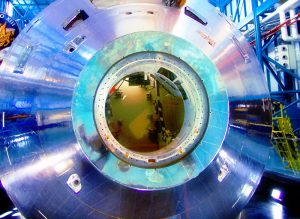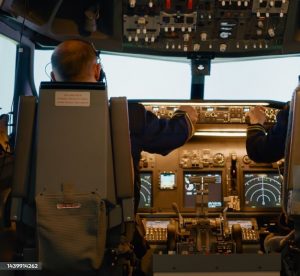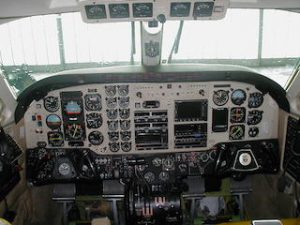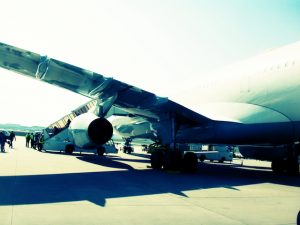Simulator Sessions In Multi-Crew Cooperation (MCC) Training
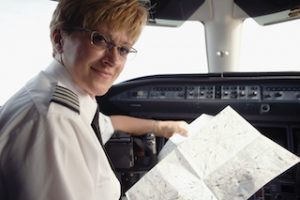 Multi-Crew Cooperation (MCC) training is a critical component in the training of airline pilots, aimed at enhancing their ability to work effectively as part of a cockpit crew. The simulator sessions within MCC training are meticulously designed to replicate real-world flight scenarios, focusing on practical training in a flight simulator, exercises on normal and emergency procedures, and rigorous assessment of performance. This article elaborates on these three essential elements of simulator sessions in MCC training, highlighting their significance and impact on pilot competence and safety.
Multi-Crew Cooperation (MCC) training is a critical component in the training of airline pilots, aimed at enhancing their ability to work effectively as part of a cockpit crew. The simulator sessions within MCC training are meticulously designed to replicate real-world flight scenarios, focusing on practical training in a flight simulator, exercises on normal and emergency procedures, and rigorous assessment of performance. This article elaborates on these three essential elements of simulator sessions in MCC training, highlighting their significance and impact on pilot competence and safety.
Practical training in a flight simulator replicating real cockpit environments
The backbone of MCC training is the practical sessions conducted in advanced flight simulators that replicate real cockpit environments with high fidelity. These simulators are designed to mimic the physical layout, controls, and systems of specific aircraft models, providing pilots with an immersive experience that closely mirrors actual flight conditions.
1) Realistic cockpit layout
Flight simulators used in MCC training are equipped with realistic cockpit layouts, complete with functioning avionics, control panels, and instrumentation. This allows pilots to become familiar with the physical setup of the aircraft they will be flying, ensuring that they can operate all systems intuitively and efficiently.
2) Environmental factors
These simulators can recreate various environmental conditions, such as different weather scenarios, day and night cycles, and varying levels of turbulence. By training in these conditions, pilots learn to handle the aircraft under a wide range of situations, preparing them for the unpredictability of real-world flying.
3) System malfunctions and failures
One of the key advantages of simulator training is the ability to introduce system malfunctions and failures in a controlled environment. Pilots can practice diagnosing and responding to technical issues, such as engine failures, hydraulic problems, and avionics malfunctions, without the risks associated with actual flight.
4) Real-time feedback
During simulator sessions, pilots receive real-time feedback on their actions and decisions. This immediate feedback loop is crucial for reinforcing correct procedures and identifying areas that need improvement. Instructors can pause scenarios to provide detailed explanations, ensuring that pilots fully understand the implications of their actions.
The practical training provided by these simulators is invaluable for developing the technical skills and situational awareness required for safe and effective multi-crew operations. By practicing in an environment that closely replicates actual flight conditions, pilots build the confidence and competence necessary for real-world flying.
Exercises focusing on normal and emergency procedures, teamwork, and communication
The second major component of MCC simulator sessions involves exercises designed to enhance pilots’ proficiency in normal and emergency procedures, teamwork, and communication. These exercises are tailored to reflect the complexities of multi-crew operations, where effective coordination and communication are paramount.
1) Normal procedures
Pilots must master a variety of normal procedures, including pre-flight checks, taxiing, takeoff, climb, cruise, descent, and landing. Simulator exercises cover these procedures in detail, emphasizing the importance of adherence to standard operating procedures (SOPs). Pilots practice coordinating their actions, dividing tasks efficiently, and maintaining clear communication throughout the flight.
2) Emergency procedures
Handling emergencies is a critical aspect of MCC training. Simulator sessions include a wide range of emergency scenarios, such as engine failures, rapid decompression, fire on board, and system malfunctions. These exercises teach pilots to remain calm under pressure, make quick and accurate decisions, and execute emergency protocols effectively. The focus is on ensuring that both pilots understand their roles and responsibilities during an emergency and can work together seamlessly to resolve the situation.
3) Teamwork
Effective teamwork is the cornerstone of successful multi-crew operations. Simulator exercises emphasize the importance of collaboration, mutual support, and shared decision-making. Pilots learn to trust each other’s judgment, distribute tasks based on individual strengths, and provide assistance when needed. Role-playing various scenarios helps pilots understand the dynamics of team interaction and develop strategies for effective cooperation.
4) Communication
Clear and concise communication is vital in the cockpit, especially during high-stress situations. Simulator sessions include exercises designed to improve communication skills, such as briefings, debriefings, and in-flight dialogue. Pilots practice using standardized communication protocols, ensuring that messages are understood correctly and any misunderstandings are promptly clarified. Exercises also highlight the importance of assertiveness and active listening, enabling pilots to communicate effectively even in challenging circumstances.
5) Leadership and followership
In multi-crew operations, both leadership and followership are essential. Simulator exercises provide opportunities for pilots to take on both roles, enhancing their ability to lead and support their team. Leadership exercises focus on decision-making, delegation, and providing clear instructions, while followership exercises emphasize the importance of supporting the leader, following instructions accurately, and providing constructive feedback.
By focusing on these key areas, simulator exercises prepare pilots for the complexities of multi-crew operations. They develop the skills necessary to handle normal and emergency situations effectively, work collaboratively with their team, and communicate clearly and efficiently.
Assessment of performance with feedback for improvement
The final element of MCC simulator sessions involves the assessment of pilot performance and providing feedback for improvement. This process is critical for ensuring that pilots meet the high standards required for safe and effective multi-crew operations.
1) Objective evaluation
During simulator sessions, instructors use objective criteria to evaluate pilot performance. This includes assessing technical proficiency, adherence to procedures, decision-making skills, teamwork, and communication. Detailed performance metrics are recorded, providing a comprehensive overview of each pilot’s strengths and areas for improvement.
3) Continuous monitoring
Instructors continuously monitor pilots during simulator exercises, observing their actions, decisions, and interactions. This real-time monitoring allows instructors to identify any deviations from SOPs, mistakes, or areas where pilots may struggle. By closely monitoring performance, instructors can provide targeted feedback and guidance.
3) Debriefing sessions
After each simulator exercise, pilots participate in debriefing sessions where they review their performance with the instructor. These debriefings are an essential part of the learning process, providing an opportunity for pilots to reflect on their actions, understand their mistakes, and discuss ways to improve. Instructors provide constructive feedback, highlighting both positive aspects and areas that need further development.
4) Use of video and data analysis
Many modern simulators are equipped with video and data recording capabilities. Instructors can use these tools to review specific moments from the exercise, providing a visual and data-driven analysis of performance. This helps pilots see exactly where they went wrong and understand how to correct their actions in the future.
5) Individualised Feedback
Feedback is tailored to the individual needs of each pilot, focusing on their unique strengths and weaknesses. Instructors provide personalized guidance, suggesting specific exercises or study materials to help pilots improve in targeted areas. This individualised approach ensures that each pilot receives the support they need to reach their full potential.
6) Setting improvement goals
As part of the feedback process, instructors work with pilots to set specific improvement goals. These goals provide a clear roadmap for development, helping pilots focus their efforts on areas that need the most attention. Progress towards these goals is tracked in subsequent simulator sessions, allowing pilots to see their improvement over time.
7) Encouraging a growth mindset
A key aspect of the feedback process is fostering a growth mindset. Pilots are encouraged to view mistakes as learning opportunities and to remain open to feedback. By promoting a culture of continuous improvement, MCC training helps pilots develop the resilience and determination needed to excel in their careers.
8) Formal assessment and certification
The assessment process in MCC training also includes formal evaluations, where pilots are tested on their ability to perform various procedures and handle emergencies. Successful completion of these evaluations is required for certification, ensuring that only those who meet the stringent standards of the airline industry are qualified to operate as part of a multi-crew team.
The assessment and feedback component of MCC simulator sessions is crucial for developing competent, confident, and capable pilots. By providing detailed evaluations and personalised guidance, instructors help pilots continuously improve their skills and prepare for the demands of real-world multi-crew operations.
Conclusion
Simulator sessions in MCC training are an essential part of preparing pilots for the complex and demanding environment of airline operations. Through practical training in realistic flight simulators, exercises focusing on normal and emergency procedures, teamwork, and communication, and rigorous assessment with feedback for improvement, pilots develop the technical skills, situational awareness, and cooperative mindset needed for safe and effective multi-crew operations.
These simulator sessions provide a controlled and immersive environment where pilots can practice and refine their skills, receive constructive feedback, and build the confidence necessary for their roles. As the airline industry continues to prioritize safety and efficiency, the importance of comprehensive MCC training, supported by advanced simulator sessions, cannot be overstated. Through continuous improvement and adherence to high standards, MCC training ensures that pilots are well-prepared to meet the challenges of modern aviation.

